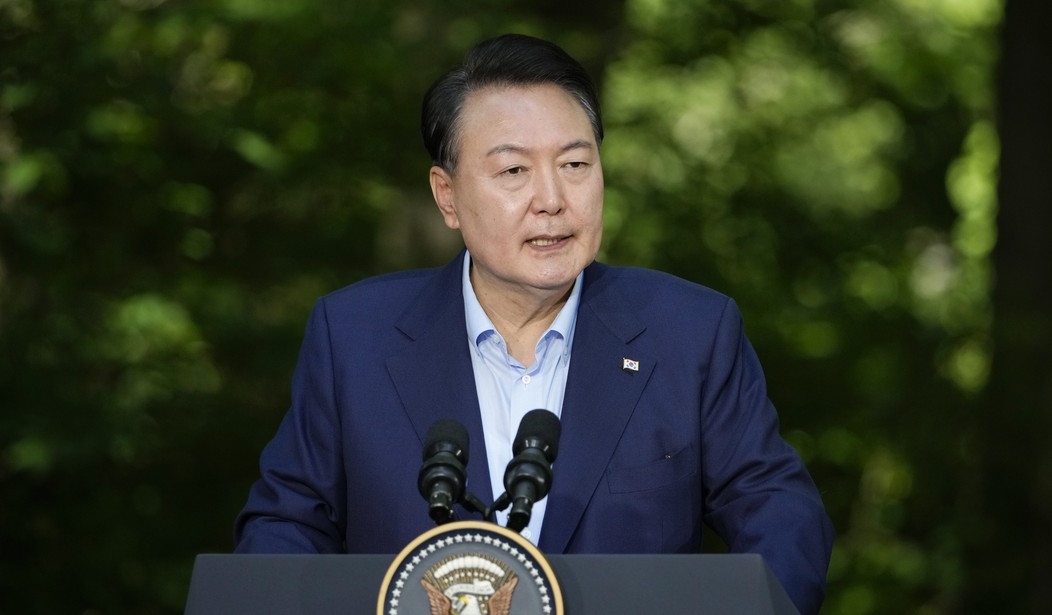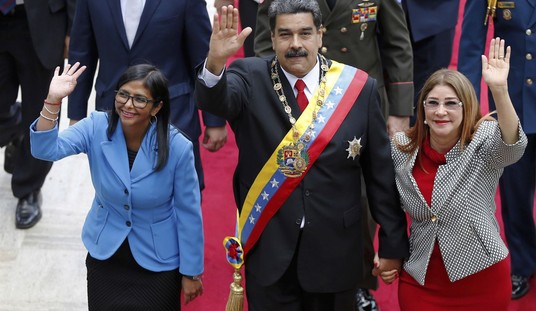The opposition Democratic Party in South Korea has gone impeachment crazy.
Two weeks ago, President Yoon Suk Yeol was impeached for declaring martial law for no reason because the obstructionist policies of the opposition made it impossible to govern. That action brought tens of thousands of citizens into the streets, calling for Yoon's impeachment.
The opposition National Assembly obliged, and now Yoon awaits the judgment of the nine-member Supreme Court, six of whom have to sign off on the legitimacy of his impeachment for Yoon to legally remove him from office.
However, the Supreme Court only has six members currently sitting. The National Assembly helpfully nominated three judges to sit on the bench to judge Yoon's impeachment, but the interim president, Prime Minister Han Duck-soo, a member of Yoon's People Power Party, is refusing to nominate the three Supreme Court judges, claiming that only the elected president can nominate Supreme Court justices.
So the National Assembly has now impeached Han. It's a huge mess at a time when South Korea is facing off against North Korea and China.
Han is amenable to appointing the three judges if "the rival parties came to an agreement on whether he had the authority to do so as the acting president, and on who should be appointed as justices," according to the New York Times.
Han believes that an acting president should “refrain from exercising the president’s own significant powers, including the appointment of constitutional institutions." He's a career bureaucrat and knows how this game is played in South Korea.
The opposition has accused Mr. Han of aiding Mr. Yoon in his brief declaration of martial law on Dec. 3. Lawmakers accused Mr. Yoon of perpetrating an insurrection by sending troops into the National Assembly to block them from voting down his martial law and to detain his opponents.
The Constitutional Court has up to six months to decide whether to reinstate or remove Mr. Yoon. Mr. Yoon’s trial started on Friday. He did not attend court, but was instead represented by his lawyers.
Mr. Yoon also faces investigations by the police and prosecutors on charges including insurrection. On Friday, the police raided a presidential safe house where Mr. Yoon was alleged to have met with officials to discuss imposing martial law, according to the Korean news agency, Yonhap.
Next in the line of succession is Choi Sang-mok, the finance minister and deputy prime minister. Han said he would defer to Choi's rule only after the Constitutional Court ruled on Yoon's impeachment.
“In order not to add to the confusion and uncertainty, I will suspend my duties in line with relevant laws and wait for the swift and wise decision of the Constitutional Court,” Han said in a statement.
That decision is likely to be neither swift nor wise. With the standoff between the Democratic Party opposition and Yoon over vacant court seats, it's going to be a while before the court will rule on Yoon's impeachment vote.
The Supreme Court could go ahead and vote on the legitimacy of the assembly's impeachment vote. It would take six justices voting for impeachment to remove Yoon from office. However, with only six members currently sitting, it would mean that if only one justice voted against impeachment, Yoon would be acquitted.
The naked power play by the opposition Democrats is shocking. Impeaching an interim president because he wouldn't act without bipartisan consent to name justices is without precedent.
Han's impeachment motion accuses him of collaborating and abetting Yoon's declaration of martial law. It also accuses Han of attempting to obstruct the restoration of the Constructional Court's full membership and of delaying investigations into Yoon's alleged rebellion by not appointing independent counsels.
The martial law enactment, the first of its kind in more than 40 years in South Korea, lasted only six hours but it caused political turmoil in South Korea, triggered alarms from its neighbors and rattled markets. Yoon has defended his decree as an act of governance, saying it was a warning to the Democratic Party which he said has been using its parliamentary majority to obstruct his agenda.
North Korea's Kim Jong-un isn't stupid enough to try and take advantage of the political crisis in South Korea. Or is he? Kim is a loose cannon, but he's not stupid. But that doesn't mean he won't be biding his time, looking for an opening.










